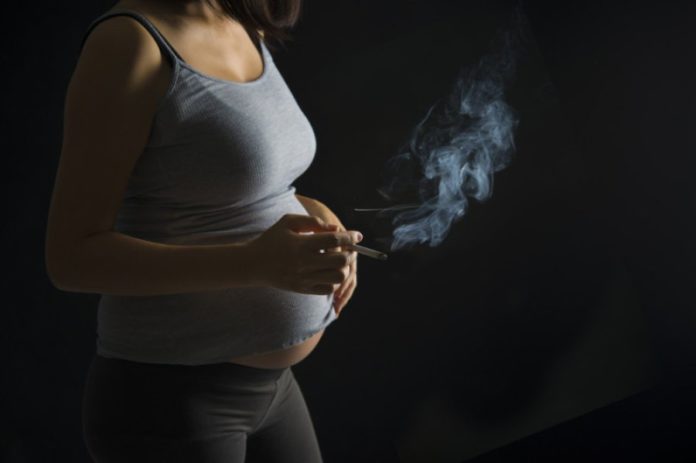The researchers conducted a study into the effects of cigarettes on developing stem cells.This enabled them to create a way to monitor the long-term effects caused to liver tissue by pregnant smokers.
They found that the cocktail of chemicals in cigarettes is particularly harmful to foetal organs and developing liver cells,especially to the liver, and may do lasting harm, revealed the study.
An Edinburgh University-led research team has developed a way to monitor the long-term effects on liver tissue of pregnant women smoking using embryonic stem cells.
Chemicals found in cigarette smoke have been shown to damage foetal liver cells, but they affect boys and girls differently.
The liver is vital for clearing toxic substances and plays a major role in regulating metabolism.
Dr David Hay, from the university’s Centre for Regenerative Medicine, said: “Cigarette smoke is known to have damaging effects on the foetus, yet we lack appropriate tools to study this in a very detailed way.
“This new approach means that we now have sources of renewable tissue that will enable us to understand the cellular effect of cigarettes on the unborn foetus.”
For the study, published in the journal Archives of Toxicology, the team developed a novel way to analyse the effects of maternal smoking on liver tissue using embryonic stem cells.
Scientists used pluripotent stem cells ,non-specialised cells that have the distinctive ability to be able to transform into other cell types ,to build foetal liver tissue.Liver cells were exposed to harmful chemicals found in cigarettes, including specific substances known to circulate in foetuses when mothers smoke.
The findings of the latest research, which was carried out in collaboration with the Universities of Aberdeen and Glasgow, also highlighted the different effects of cigarette smoke on livers in male and female foetuses.
Male tissue showed liver scarring and female tissue showed more damage to cell metabolism.
Smoking cigarettes, which contain about 7,000 chemicals, can damage foetal organs and may do lasting harm.
The National Health Service (NHS) advises that women refrain from smoking during pregnancy because of the harm it causes unborn babies. Cigarettes can restrict their essential oxygen supply and result in their hearts beating harder every time one is smoked.
Prof Paul Fowler, director of the institute of medical sciences at the University of Aberdeen, said: “This work is part of an ongoing project to understand how cigarette smoking by pregnant mothers has harmful effects on the developing foetus.
However smoking during pregnancy can lead to a plethora of health risks to both the mother and the foetus. Women who smoke during pregnancy are about twice as likely to experience these pregnancy complications.
‘Premature rupture of membranes’,wherein the amniotic sac will rupture prematurely, and will induce labour before the baby is fully developed. Although this complication has a good prognosis in Western countries, it causes stress as the premature child may have to stay in the hospital to gain health and strength to be able to sustain life on their own.
‘Placental abruption’, wherein there is premature separation of the placenta from the attachment site. The fetus can be put in distress, and can even die. The mother can lose blood and can have a haemorrhage and she may need a blood transfusion.
‘Plancenta previa’, wherein the placenta grows in the lowest part of the uterus and covers all or part of the opening to the cervix.
Having placenta previa is an economic stress as well because it requires having a ‘Ceasarean Section Delivery’, which require a longer recovery period in the hospital. There can also be complications, such as maternal hemorrhage.
Quitting smoking reduces the risk of complications in pregnancy and birth, as well as stillbirth. Babies are less likely to be born early and face additional breathing, feeding and health problems that are associated with being premature.


























